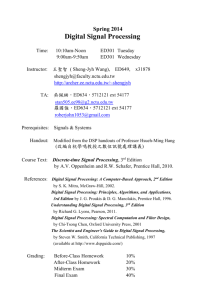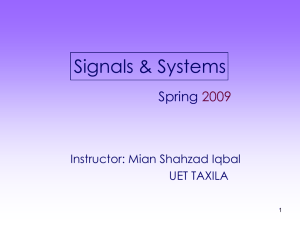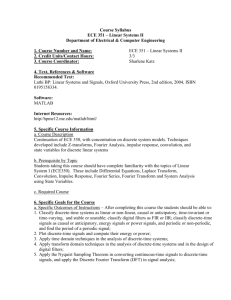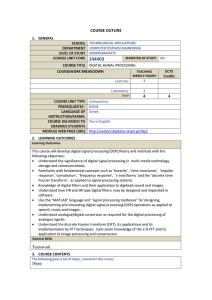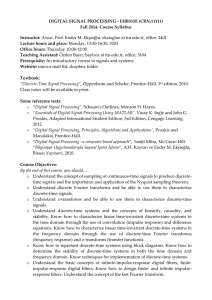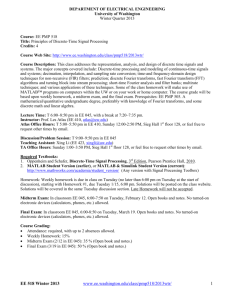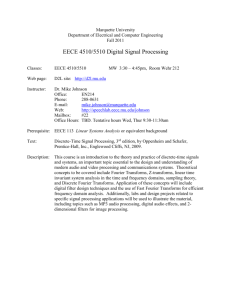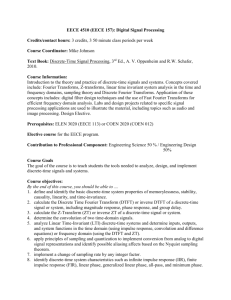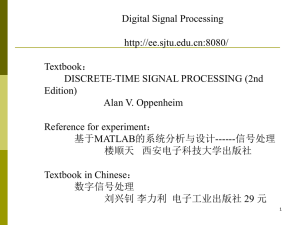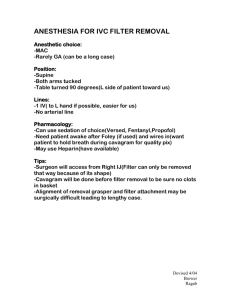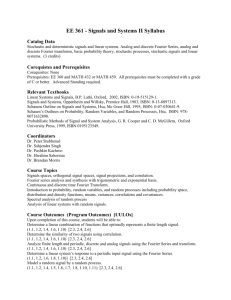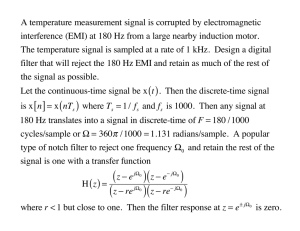COURSE DESCRIPTION - Electrical and Computer Engineering
advertisement
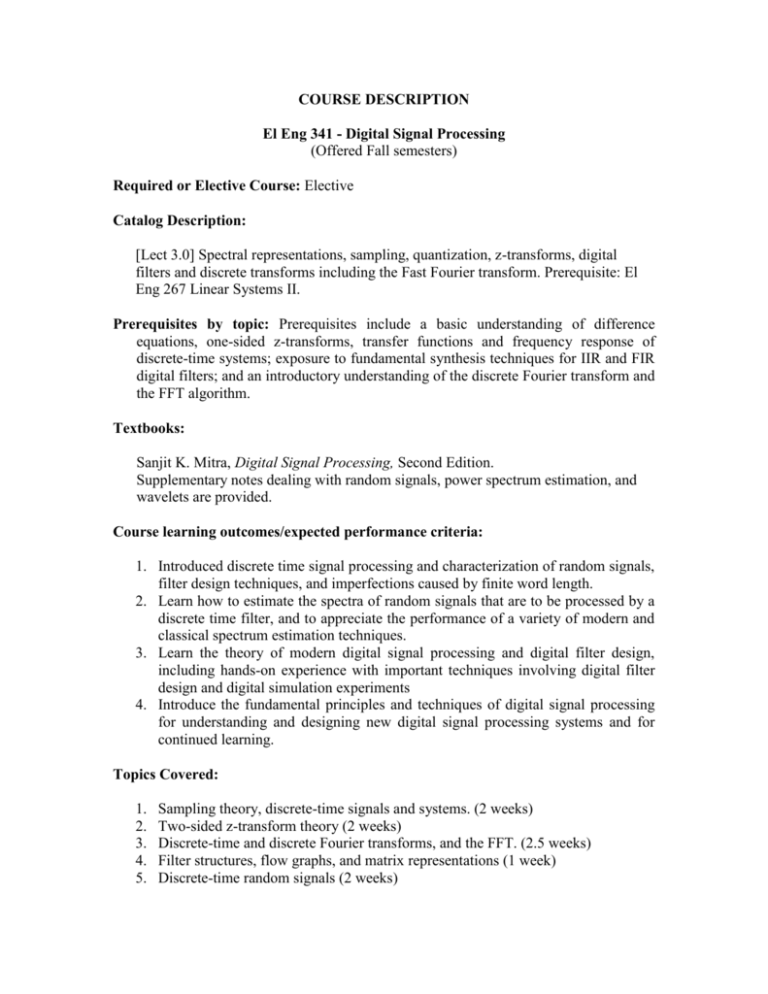
COURSE DESCRIPTION El Eng 341 - Digital Signal Processing (Offered Fall semesters) Required or Elective Course: Elective Catalog Description: [Lect 3.0] Spectral representations, sampling, quantization, z-transforms, digital filters and discrete transforms including the Fast Fourier transform. Prerequisite: El Eng 267 Linear Systems II. Prerequisites by topic: Prerequisites include a basic understanding of difference equations, one-sided z-transforms, transfer functions and frequency response of discrete-time systems; exposure to fundamental synthesis techniques for IIR and FIR digital filters; and an introductory understanding of the discrete Fourier transform and the FFT algorithm. Textbooks: Sanjit K. Mitra, Digital Signal Processing, Second Edition. Supplementary notes dealing with random signals, power spectrum estimation, and wavelets are provided. Course learning outcomes/expected performance criteria: 1. Introduced discrete time signal processing and characterization of random signals, filter design techniques, and imperfections caused by finite word length. 2. Learn how to estimate the spectra of random signals that are to be processed by a discrete time filter, and to appreciate the performance of a variety of modern and classical spectrum estimation techniques. 3. Learn the theory of modern digital signal processing and digital filter design, including hands-on experience with important techniques involving digital filter design and digital simulation experiments 4. Introduce the fundamental principles and techniques of digital signal processing for understanding and designing new digital signal processing systems and for continued learning. Topics Covered: 1. 2. 3. 4. 5. Sampling theory, discrete-time signals and systems. (2 weeks) Two-sided z-transform theory (2 weeks) Discrete-time and discrete Fourier transforms, and the FFT. (2.5 weeks) Filter structures, flow graphs, and matrix representations (1 week) Discrete-time random signals (2 weeks) 6. Filter design including finite word length effects, and processing of random signals. (2.5 weeks) 7. Classical power spectrum estimation. (2.5 weeks). 8. Introduction to wavelets and applications in DSP (0.5 weeks). 9. Exams (1 week) Class Schedule: Three 50-minute or two 75-minute lectures/week are typical. Homework is assigned on a weekly basis. Professional Component: This course covers digital signal processing theory and design, thus fulfilling in part the engineering science and engineering design component of the professional component. Students who achieve the course objectives will be able to work successfully as entry-level engineers in the digital signal processing field. Material from this course can also be used to complete senior design projects in the digital signal processing area. Relationship of course learning outcomes to ECE program outcomes: ECE Outcome a b c d e f g h i j k l Course Outcomes 1 2 3 4 S S M M M W M S S M S M S Comments Application of concepts in mathematics S M Key laws and relationships for signal processing M M Fundamental concepts in electrical signals W W S – strong connection; M – medium connection; W – weak connection Prepared by: Steve Watkins Date: June 16, 2008
